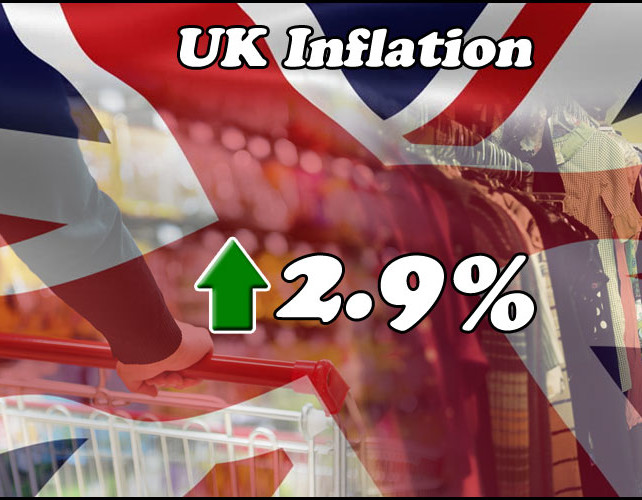
UK inflation climbed more-than-expected in August to its joint highest level in over five years, driven by strong increase in clothing and petrol prices, and added pressure on the Bank of England rate-setters to raise interest rates amid the Brexit-fueled economic uncertainty.
The consumer price index rose 2.9 percent year-on-year following 2.6 percent increase in July. Economists had forecast 2.8 percent inflation.
The 2.9 percent inflation is the highest since April 2012 and was previously logged in May this year.
The pound surged to a one-year high versus the US dollar following the release of the data. The currency also soared against the euro.
The drop in the value of the pound since the Brexit referendum in June last year boosted import prices, which partly fueled price growth for household items.
Clothing and footwear prices rose at the fastest pace since the CPI series began in 1997, up 4.6 percent annually in August. The surge was largely due to a weaker pound as the sector is highly import-intensive, the ONS said.
Petrol prices rose by 1.8 pence per litre this year, while they had fallen 1.8 pence a year ago.
The Bank of England is set to announce its latest policy decision on Thursday. Inflation is now well above the bank's target of 2 percent, worsening the dilemma for rate-setters who are worried about raising rates amid the economic uncertainty.
Economists do not expect a rate hike this time given the policymakers' concern over the slowing economy. However, they said it is possible that more rate-setters will vote for a hike, most likely the BoE Chief Economist Andy Haldane, thus widening the split in the Monetary Policy Committee to 6-3.
"If we do get a 6-3 vote for stable policy it could prompt a re-appraisal of the potential path of interest rates, but we feel that the economic uncertainty brought about by Brexit will lead the committee to hold fire until there is much greater clarity the UK's post Brexit environment," ING Bank economist James Knightley said.
"The inflationary impulse from sterling's post referendum plunge will gradually fade through next year and there is a lack of domestically generated price pressures," he added.
Wage growth that is lagging behind inflation is also a serious concern for policymakers as this could dampen household spending, going forward. The ONS is set to release labor market data on Wednesday
Separate data from the ONS showed that factory-gate inflation accelerated to 3.4 percent in August from 3.2 percent in July. The rate rose for the first time in six months, after peaking at 3.7 percent in February and March.
Input price inflation climbed to 7.6 percent from 6.2 percent, marking the first increase in the rate in seven months. The figure peaked at 19.9 percent in January.
by RTT Staff Writer
For comments and feedback: editorial@rttnews.com
Business News

